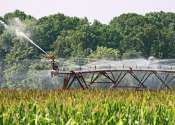New material opens the door for energy-efficient computing
Over the last decade, with the introduction of increasingly complex artificial intelligence (AI) technologies, the demand for computing power has risen exponentially. New, energy-efficient hardware designs could help meet ...









